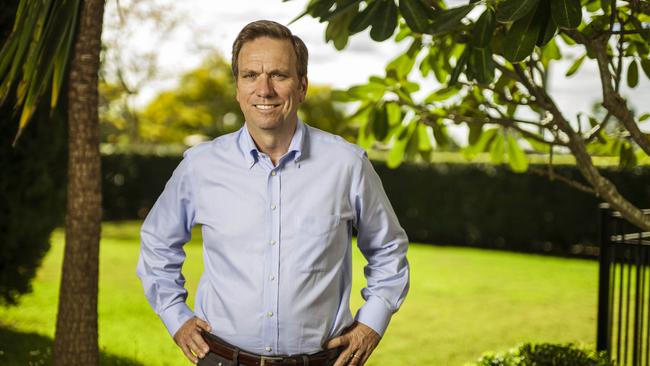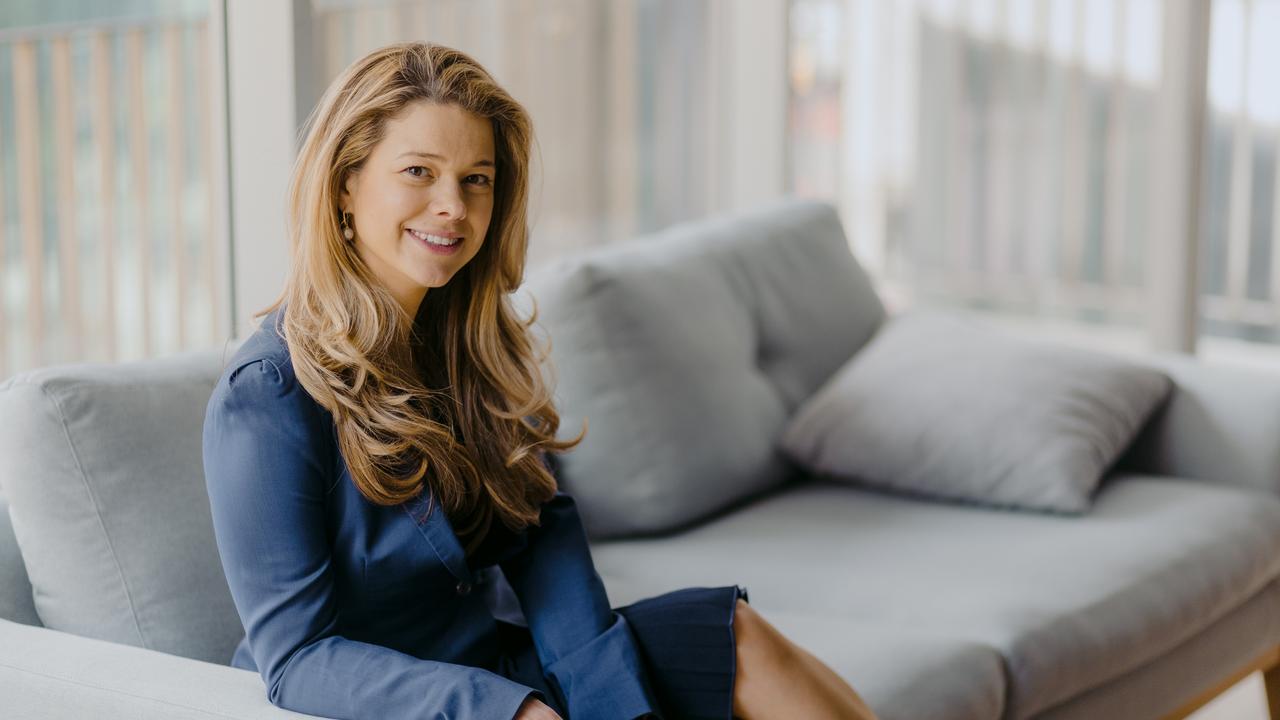JLL’s Stephen Conry: what changes when a very frequent flyer is grounded
The shutdown has been a shock for many bosses used to flying around the country and the world as part of their daily work.

Once upon a time Stephen Conry, chief executive of real estate agency JLL Australia, was the guy who raced to the airport at dawn to catch that interstate or international flight.
Based in Brisbane but with a remit across the region, the property veteran travelled almost weekly across Australia or overseas, overseeing staff and connecting with clients.
Those 3.30am starts are becoming a dim memory since Conry — along with countless other Australian executives — found himself suddenly grounded by the COVID-19 pandemic, confined to home and forced to find new ways of managing a spread of workplaces.
“When we made the decision, it was a Sunday. And we were out by Tuesday,” Conry tells The Deal. No more flights. No chairing meetings of the peak industry group the Property Council of Australia in person. No trips to the office for about 80 days.
It was a huge change for the gregarious former valuer and agent who had to confront a world in which he could not see staff, clients, industry rivals or an extensive network of friends built up across four decades.
Conry has led the local operation of JLL since 2009, delivering a decade of record-breaking growth as the firm pushed into new fields. It’s a role in which he has helped direct billions of dollars of capital seeking the safe, steady returns generated by Australian commercial assets.
Confined to quarters, Conry has had time to reflect — not only on the property market but also on the pluses and minuses of leading a distributed workforce in a world where business has been conducted via phone and video meetings.
Conry warns of tough times and says leaders have a crucial role to play in guiding their staff through this unprecedented period.
“You actually learn more from tough times,” he says. He joined the industry in 1982 as a JLL trainee in valuations and has seen the market shift from the 1980s boom to the more difficult 90s and beyond.
“I’ve seen some tough markets and economies; it does help you prepare,” he says. Even during the latest commercial property boom he was readying for the good times to end. “There’s always that feeling that it could change one day. I didn’t think it would change as suddenly as this or as globally as this.”
JLL built up annuity income streams, in property management and advice, that will keep it ticking over in the face of any coronavirus-induced chaos. Conry is advising clients — and younger staff unfamiliar with such challenges — that we are in an environment of uncertainty.
“We’re now dealing with the reality of new markets, and a big part of the last 80 days was assessing what the future looks like when it’s shrouded in uncertainty,” he says.
But the crisis has changed the veteran executive in ways both obvious and more subtle that are likely to leave a lasting impression. JLL Australia avoided extensive staff lay-offs and took a more communal approach with top levels of the business taking pay cuts.
“That was widely supported,” he says. “Going through those sorts of decisions isn’t easy but was necessary.”
Conry is still a hard driver, believing that the harder you work, the luckier you get. But there has been a big change from flying almost every week to Sydney and Melbourne, and to other capitals here and overseas every month.
He misses face-to-face meetings, forums and events, saying they make up an important part of work discourse. But without those disruptions he has found himself working longer hours — and he points out he is not alone in this.
“I think a lot of people have been working longer hours and have been working very hard to deal with new issues,” he says. “I’m not leaving home at 3.30 to get a five o’clock flight, and then on a flight and then in taxis. But if I come to my study at 4.30 in the morning, it’s the same, it’s productive.”
While Conry’s peripatetic lifestyle ground to a halt in mid-March, JLL Australia is making a staggered return to offices around the country, using a split teams approach in most places.
Conry is keen to retain some of the lessons the firm learned during the crisis period and says he is determined to keep open new lines of communication that are already a key part of the firm’s culture.
JLL staff can expect more phone and video calls. Virtual meetings will continue while interstate travel is restricted.
“It’s forced us to set up more regular meetings and that’s a very good thing,” Conry says of the travel ban. “It might be that CEOs like me or our managing directors around the country won’t need to fly to see each other. There will be more on-screen meetings.”
But he argues face-to-face meetings, both formal and informal, are crucial in generating ideas and improving productivity. Offices — and all the benefits they bring — are anything but dead.
“A clear majority (of staff) want to be back in the office,” Conry says. “We’ll see that sooner rather than later. It has highlighted the benefits of when you are together for that social connection and collaboration.” Not to mention access to colleagues and clients, and, indeed, the support you need and receive from your leader.
Conry wants a return to the office so people can work together. “It’s more sustained, it’s more effective and more productive. You can’t do as much on phone calls as you can by seeing and chatting to people by walking around,” he says.
With his early starts there is now more time for exercise and enjoying the company of a university student son who has returned from virus-hit Sweden.
“There hasn’t been as much distraction so that you can go for a very early morning walk,” he says. “It doesn’t matter what time you go. That’s been somewhat easier because it’s not interrupted by a flight.”




To join the conversation, please log in. Don't have an account? Register
Join the conversation, you are commenting as Logout